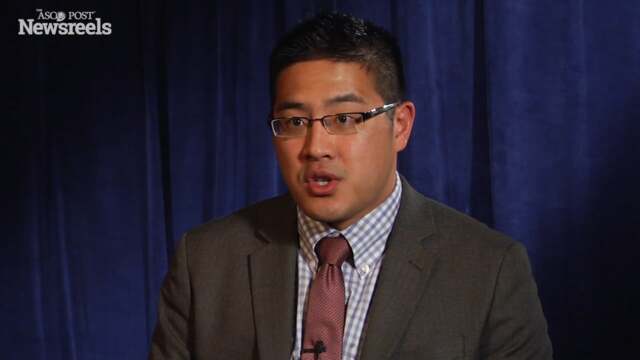Anthony Zietman, MD, on Hormonal Therapy and Salvage Radiation: Results of RTOG 9601
2015 ASTRO Annual Meeting
Anthony Zietman, MD, of Massachusetts General Hospital, discusses his perspective on the study of bicalutamide during and after radiotherapy in patients following radical prostatectomy and a biochemical relapse (Abstract LBA5).
Roy Decker, MD, PhD
Roy Decker, MD, PhD, of Yale University School of Medicine, discusses a National Cancer Database analysis that showed elderly patients with limited-stage small cell lung cancer can benefit from adding concurrent radiation to chemotherapy (Abstract 1010).
Catherine C. Park, MD
Catherine C. Park, MD, of the University of California, San Francisco, summarizes results from three clinical trials of radiation therapy for various cancers: metastatic melanoma, oropharyngeal squamous cell carcinoma, and breast cancer (Abstracts 215, 3, and LBA7).
Stephen G. Chun, MD
Stephen G. Chun, MD, of MD Anderson Cancer Center, discusses the comparison of 3D conformal and IMRT outcomes for locally advanced non-small cell lung cancer (Abstract 2).
Alysa M. Fairchild, MD
Alysa M. Fairchild, MD, of the Cross Cancer Institute and the University of Alberta, discusses her study on the use of dexamethasone to reduce pain flare in patients receiving palliative radiotherapy for bone metastases (Abstract LBA6663).
Supriya Chopra, MD
Supriya Chopra, MD, of Tata Memorial Hospital, discusses results of the PARCER study, which compared conventional 3D conformal radiotherapy to image-guided intensity-modulated radiotherapy in reducing bowel side effects for women with cervical cancer (Abstract 8).





